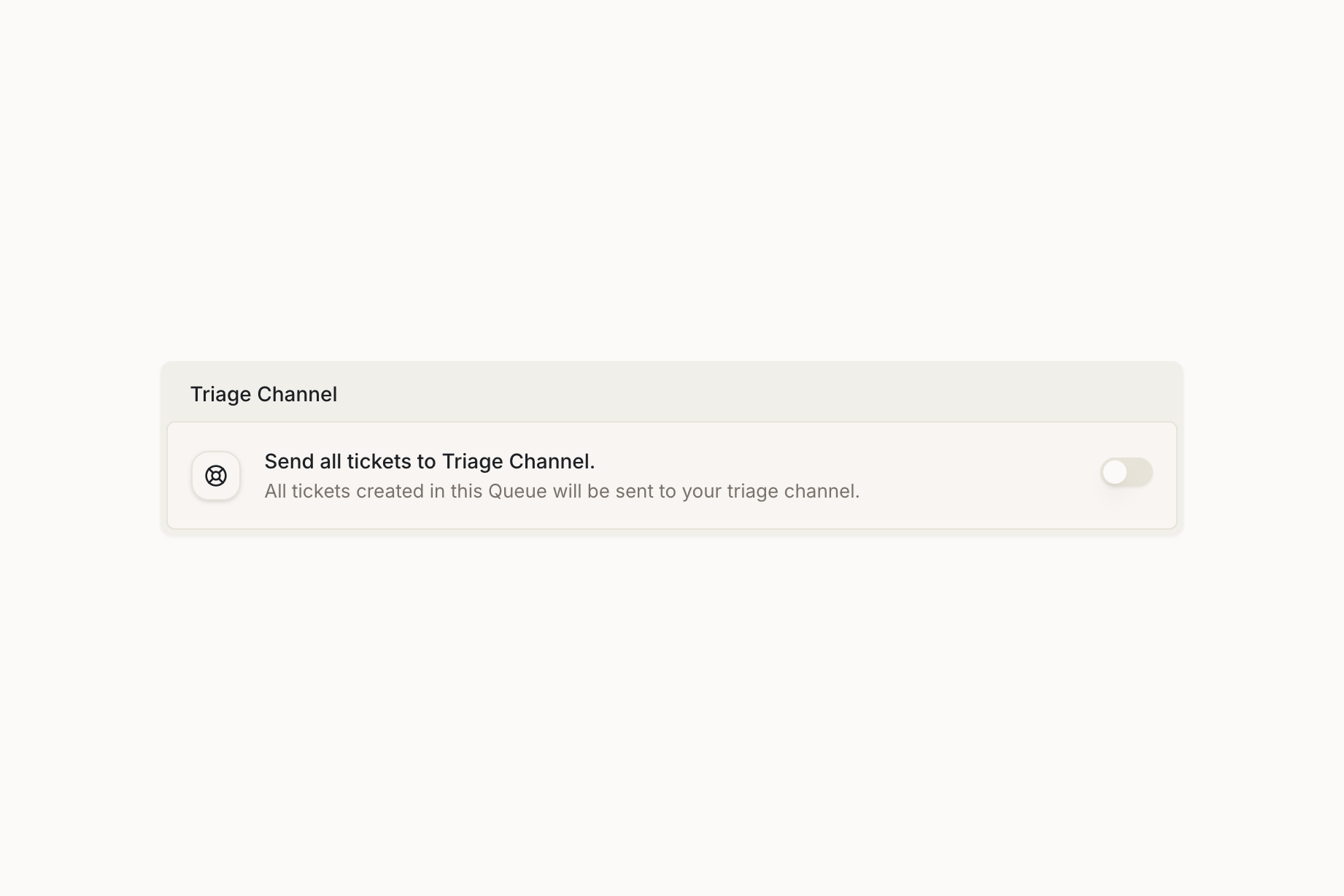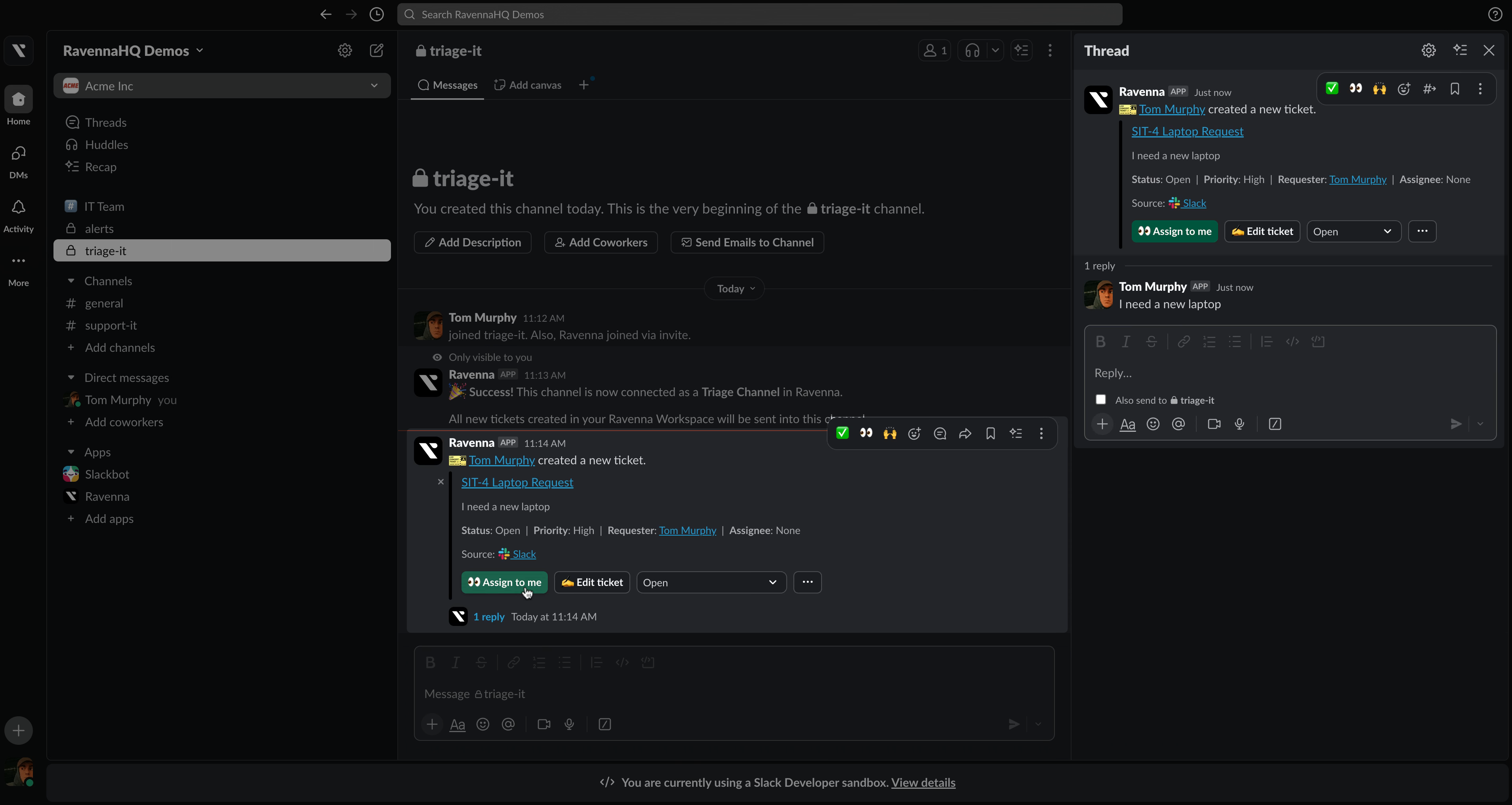Overview
One per workspace
Each workspace can have one Triage channel, typically a private channel for your support team.
Automatic mirroring
New tickets automatically appear in the Triage channel with full context and action buttons.
Two-way sync
Messages sent in the Triage channel sync back to the original request thread.
Full ticket actions
Agents can take all ticket actions directly from the Triage channel.
Setting up a Triage channel
1
Navigate to Workspace Settings
Go to Settings > Workspace > Slack in Ravenna.
2
Connect your channel
In the Triage Channel card, click Connect and select your preferred Slack channel.

For a detailed walkthrough, see our Setting up a Triage Channel guide.
Controlling ticket forwarding
You can control whether tickets from specific queues are sent to the Triage channel.1
Navigate to Queue Settings
Go to Queue > Settings and click Slack in the left navigation.
2
Configure forwarding
Toggle the Send all tickets to Triage Channel setting.

By default, this setting is not enabled, allowing you to manage certain queues independently.
Working in the Triage channel
Ticket mirrors
When a ticket appears in your Triage channel, you’ll see a Ticket Mirror with:- Full ticket context and thread history
- Action buttons for common operations (assign, resolve, close)
- Real-time updates as the ticket progresses

When a ticket is moved to a different workspace, the mirror in the original Triage channel is automatically updated to show where it was moved, and a new mirror is created in the destination workspace’s Triage channel.
Message synchronization
Messages work bidirectionally between the Triage channel and the original request channel:- Triage → Request: Messages sent in the Triage channel appear in the original request thread
- Request → Triage: Messages sent in the request thread appear in the Triage channel
Best practices
Use a private channel
Keep your Triage channel private so only your support team can see all incoming tickets.
Set up notifications
You can disable slack notifications for request channels, and leave on for your Triage channel only to cut down on noice.
Use Emoji Reacitons
Use reactions like 👀, ✅ and ❌ to quickly work on tickets in the queue.
Monitor regularly
Make the Triage channel a central hub for your team to monitor ticket volume and response times.

